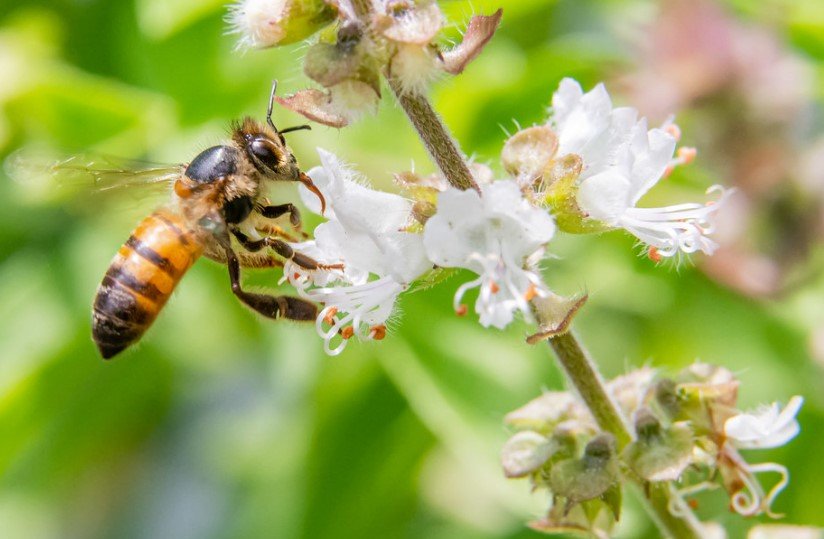Aggressive Africanized Honey Bees Found Just Across the Chattahoochee River in Alabama
They’re small, deadly, and now dangerously close to Georgia. Africanized honey bees—often dubbed “killer bees”—have been detected in Barbour County, Alabama, just across the Chattahoochee River from Georgia’s Quitman County. Officials aren’t panicking yet, but they’re definitely paying close attention.
Georgia’s agriculture department is monitoring the situation after a swarm tested positive for Africanized DNA. These bees, a hybrid of African and European honey bees, are known for their defensive behavior and have been responsible for hundreds of human deaths across the Americas. So yeah, even if you’re not allergic, these things aren’t to be messed with.
A Borderline Buzz That’s Triggering State Attention
Barbour County, Alabama isn’t typically the place you’d expect killer bees to pop up. But that’s exactly what happened—just 85 miles west of Albany, Georgia.
According to Phillip Carter, Alabama’s state apiary inspector, the bees were found living inside the wall of a house, not a managed hive. They were euthanized immediately after DNA confirmed their Africanized genetics.
“That’s the good news,” Carter said. “It looks like an isolated case so far. But we’re keeping our eyes open.”
Georgia’s Agriculture Commissioner Tyler Harper struck a balance between calm and caution. “There’s no need for Georgians to be concerned at this time,” he told the Atlanta Journal-Constitution, “but we are actively monitoring the situation and encouraging beekeepers to report any overly aggressive colonies.”
Just a wall, just a swarm—but it’s enough to raise eyebrows.

Killer Bees 101: What Makes Them So Dangerous?
To the naked eye, Africanized bees look just like their European cousins. But don’t let their size fool you—they’re more aggressive, more persistent, and quicker to attack.
Dr. Lewis Bartlett from the University of Georgia explains why that’s terrifying.
“It’s the hybrid behavior,” he said. “African bees are easily startled but don’t sting readily. European bees are harder to provoke but sting quickly. The Africanized hybrids do both.”
That combo makes them lethal.
-
They can chase a threat up to 1,000 feet.
-
They often attack in large numbers.
-
They respond to smaller threats more quickly than European bees.
-
They’ve caused about 1,000 deaths since their introduction to the Americas.
And they’re not just dangerous to people. Livestock, pets, and native pollinators are all at risk too.
Flashbacks to 2010: A Fatal Encounter in Albany
If you’re thinking this is all just buzz, think again. Georgia has felt this sting before—literally.
Back in 2010, a man in Albany, Georgia was killed after being swarmed by Africanized bees. It’s one of the few confirmed fatal encounters in the southeastern U.S., but it underscores the threat when these hybrids pop up unexpectedly.
“It’s rare, yes,” said Peter Helfrich of the Metro Atlanta Beekeepers Association. “But it’s not unheard of.”
Still, Helfrich and others stress that this isn’t the time to panic. These bees aren’t invincible, and they’re not exactly invading en masse.
“This far north, fully Africanized colonies are still very uncommon,” he added.
So while the odds of a full-on killer bee takeover are low, history says even one swarm can do irreversible damage.
Local Beekeepers: Concerned, But Not Alarmed
Not everyone is sounding the alarm. Seasoned Georgia beekeepers say aggressive hives can happen—and they know how to deal with them.
Julia Mahood, president of the Georgia Beekeepers Association, said the reaction shouldn’t be hysteria. “This isn’t 1995. We’ve learned a lot. And most beekeepers know what to look for.”
She’s been in the field for 21 years. To her, the key is education.
“If your colony gets aggressive, you replace the queen. Simple as that.”
Still, the concern is real. Because unlike past scares, this swarm wasn’t in a hive or part of a beekeeper’s system. It was wild.
Which begs the question: where else could they be?
Scientists and State Teams Are On It
Officials in Alabama aren’t just squashing bees—they’re running DNA tests, talking to locals, and checking hives all across Barbour County. Georgia’s agencies are staying looped in.
Here’s a quick breakdown of current action:
| Agency | Role | Status |
|---|---|---|
| Alabama Dept. of Agriculture | Confirmed DNA test, euthanized swarm | Monitoring |
| Georgia Dept. of Agriculture | Issued statement, alerting beekeepers | On watch |
| Local Beekeepers | Reporting aggressive hives, replacing queens | Cooperative |
| University of Georgia | Researching hybrid behavior and response | Active |
Carter said more testing is underway. “We’ve got a small team, but we’re coordinating with state and local groups. The hope is this was just a one-off.”
Let’s hope.
The Sting in the Details: What Should Residents Do?
So what’s a regular Georgia or Alabama resident supposed to do? Dr. Bartlett has some simple advice: don’t poke the hive.
Seriously. Just don’t mess with bees you don’t recognize.
“Most people who get stung by Africanized bees weren’t trying to mess with them. They stumbled into their territory,” Bartlett said. “If you see bees and they seem agitated, move away. Fast.”
Beekeepers in Georgia are also being asked to keep a close eye on hive behavior. If a colony starts acting weird—too aggressive, too easily provoked—they should report it.
And for now, officials stress, this is a situation to watch—not fear. But stay aware, especially if you’re near the border counties.
